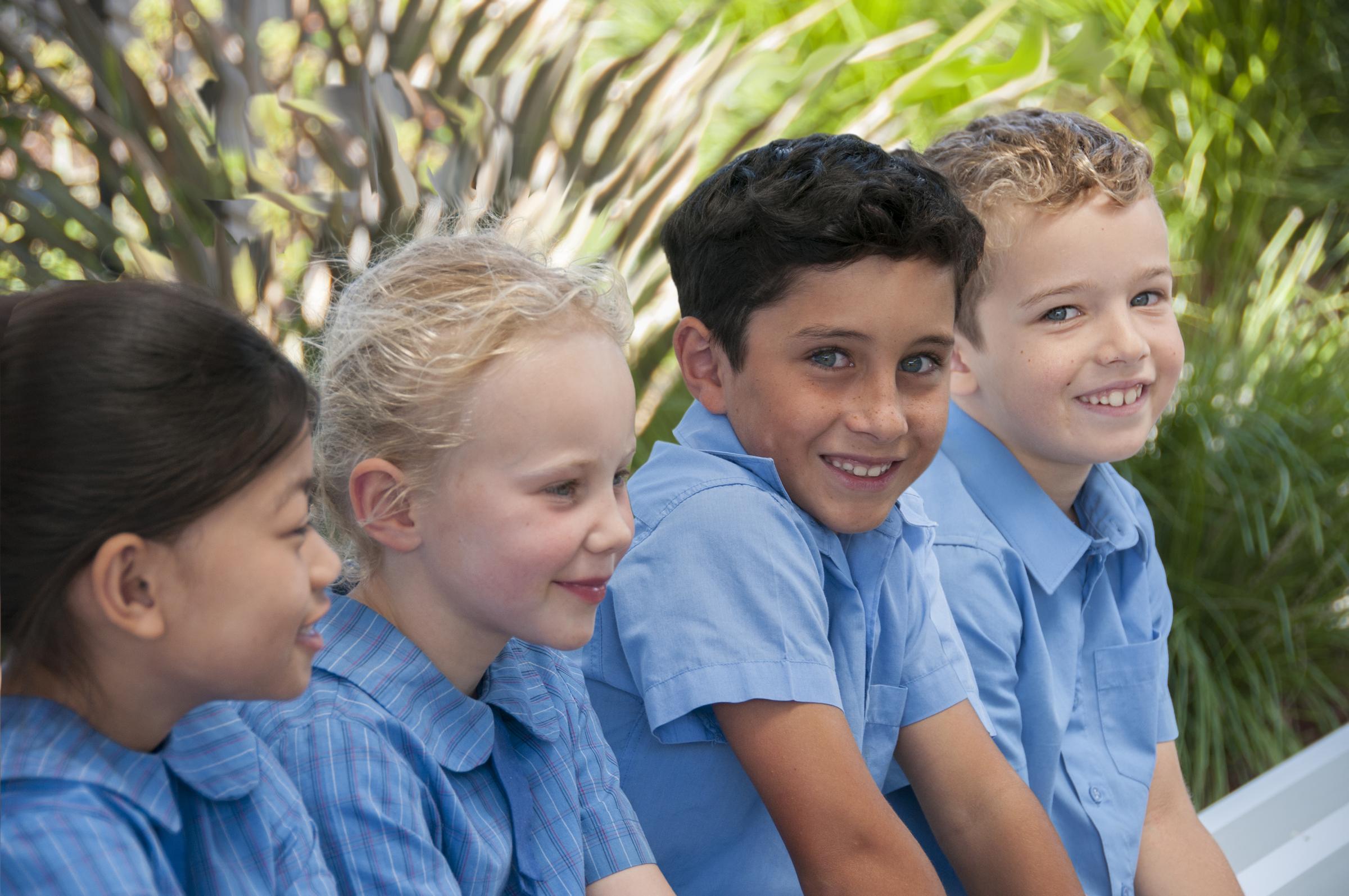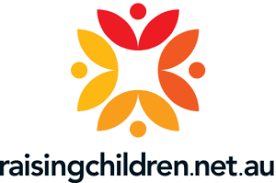Student Well-being

This term, wellbeing lessons across the school have been planned based on our Corpus Christi School Values and Rules. Each Learning Community has planned a sequence of lessons that target each value and what they look like within our school.
Year Prep Community
This week, the Year Preps focused on the School Value:
'We have the right to feel safe and be safe'
As a community, we discussed what the word 'safe' means. The children not only discussed what makes them feel safe, but they came up with different ways we can be safe in the classroom and outside the classroom.
In small groups, the children role played what 'being safe' looks like within different areas of the school, including:
- Classroom
- Playground
- Toilet
- Line up areas
- Gathering Space
- Online
It was fantastic to hear the language the children used and was a wonderful opportunity for them to see and hear what it meant for their peers to feel safe while at school.
Understanding and managing emotions: children and teenagers
Understanding and managing emotions: why it’s important
Understanding and managing emotions is important for development and wellbeing during childhood and adolescence.
Children and teenagers who can understand and manage their emotions are more likely to:
- express emotions by speaking calmly or in appropriate ways
- bounce back after feeling strong emotions like disappointment, frustration or excitement
- control impulses
- behave appropriately – that is, in ways that don’t hurt other people, things or themselves.
And this is good for children because it helps them learn, make friends, become independent and more.
Your child’s ability to understand and manage emotions develops over time. When your child is young, they’ll need help with understanding emotions. This mostly involves recognising and naming emotions and lays the groundwork for managing emotions as your child gets older.
As your child grows, they’ll learn more strategies to manage their emotions without your help.
Understanding and managing emotions is also called emotional regulation. It’s an important part of your child’s self-regulation.
Children under 3 years: developing language for emotions
Children experience emotions before they can use words to describe those emotions. Children also understand language before they can use it themselves. So you can help your child understand what they’re feeling by helping them develop ‘emotional language’.
It might feel strange to talk to your child about feelings while they’re still developing language skills. Here are some ideas to help:
- When you see your child showing a particular emotion, label it for them and talk about it. For example, ‘You have a big smile on your face. You must be happy to see me’, or ‘You’re crying. You’re frustrated because you can’t play with the fish’.
- Label the emotions your child sees in you and other people. For example, ‘Auntie’s sad because she misses Grandpa’.
- Help your child explore emotions through play. Play ideas to develop young children’s emotions include puppet play, singing, reading and messy play.
Children 3-8 years: learning to understand and manage emotions
Children develop their ability to recognise and name emotions through plenty of practice. It’s easier for children to practise through play, when they’re relaxed, or before their emotions get too intense.
Here are some ways you can help your child practise recognising and naming emotions:
- Talk about the emotions that characters in books, TV shows or movies might be experiencing. For example, ‘Look at Bluey’s face. She looks sad’.
- Read books about emotions with your child. To start with, you could try The way I feel by Janan Cain, All about feelings from Usborne, or F is for feelings by Goldie Millar and Lisa A. Berger.
- Show your child how you recognise your emotions and help them to recognise theirs. For example, ‘When I broke that glass, I yelled really loudly. Does that happen to you when you make a mistake and feel angry?’
- Help your child work out how their body feels when they’re experiencing an emotion. For example, ‘You look nervous. Have you got butterflies in your tummy?’
- Give your child opportunities to explore emotions through play. Play ideas to develop preschooler emotions and play ideas to develop school-age emotions include messy play, drawing or painting, puppet play, dancing and music play.
- Do an emotions activity with your child. You choose an emotion like ‘excited’ and act it out with your child. You can turn this activity into a simple guessing game.
You can also start helping your child learn simple strategies to manage their emotions. For example:
- Teach your child ways to calm down from strong emotions like counting to 10 or taking five deep breaths.
- Suggest ways to react to strong emotions – for example, clap your hands when you’re excited, ask for a hug when you’re sad, or squeeze your cushion really hard when you’re angry.
Pre-teens and teenagers: strengthening emotional skills
Pre-teens and teenagers often feel strong and sometimes overwhelming emotions like shame and humiliation. They might know the words for these emotions but still have trouble recognising them when they’re upset. Also, because of teenage brain development, teenagers don’t always have the skills to express and manage emotions in an adult way.
That’s why pre-teens and teenagers still need help with understanding and managing emotions. With practice, your child will be able to manage their emotions without you.
Here are some ideas to strengthen your child’s ability to understand and manage emotions in the teenage years:
- Step in when you can see emotions building up. The sooner your child can spot their emotional changes, the easier it will be for them to stay in control of their behaviour.
- Help your child notice early physical signs of strong emotions. For example, ‘When I was stuck in traffic yesterday, my heart was racing and I felt really hot. Does that happen to you when you’re frustrated?’
- Help your child notice early behaviour signs of strong emotions. For example, ‘You’re starting to hit that keyboard a bit hard. Do you need to stop for a minute and get some fresh air?’
- Talk with your child about what you do when you notice the signs that strong emotions are building up. For example, ‘When I start to feel really angry with myself, I focus on something I’m really proud of instead. Would that work for you?’
- Work with your child on a list of things they could do when they notice strong emotions building up, like going for a run, listening to loud music on their headphones, or meditating. Try to include plenty of options so your child can choose ones that feel right in different situations.
Remember that talking with teenagers about emotions won’t be as effective when they’re struggling with the strong emotion. You need to step in early or wait until the emotion has passed.
Signs your child might need help to manage their emotions
All children need help and support to manage strong emotions sometimes, especially younger children or children dealing with extra challenges like a death in the family or other traumatic event.
Children might need help to manage strong emotions if they:
- feel upset or miserable about how overwhelming their emotions are
- feel very strong emotions that are out of proportion to the problem or situation
- still feel strong emotions for a long time after whatever sparked the emotions
- often go from being calm to feeling an intense emotion like anger very quickly
- express emotions inappropriately – for example, laughing in response to bad news
- go very quiet, hide or push people away when they’re overwhelmed.
Also, pre-teen and teenage children might need help if they:
- seem to make poor decisions because they feel strong emotions like frustration
- find it hard to relax enough to enjoy their hobbies or be with family and friends.
Read more on Social and Emotional Development in children and teenagers on https://raisingchildren.net.au/school-age/development/school-age-social-emotional-development
Lauren Borg
e-Learning/Student Well-being Leader


